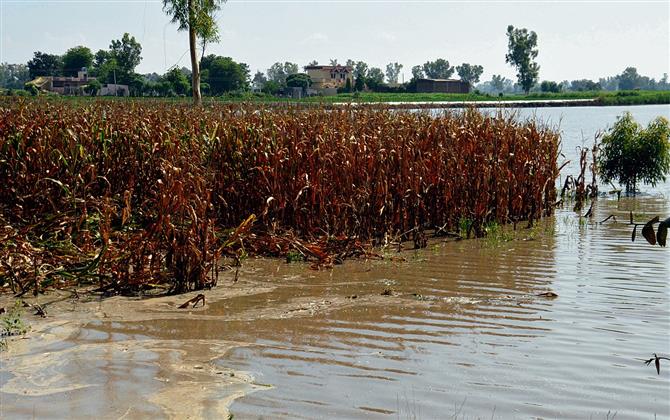To replant paddy saplings, government readies nurseries in various districts

Despite the flooding tolerance in various varities of paddy, the raging rivers have largely impacted this crop. As such, farmers have no other option but to replant the paddy saplings.
Dr Gurvinder Singh, Director, Agriculture Department, said, “We have prepared nurseries in flood-affected districts — Mohali, Patiala, Jalandhar, Moga and Tarn Taran.”
Kapurthala Deputy Commissioner Capt Karnail Singh said basmati saplings had been planted in 20 nurseries for farmers. The saplings would be ready in next 20 to 25 days.
The process of assessing crop loss was being carried by the Revenue Department. Along with paddy, floods have also destroyed maize crop, vegetables and green fodder.
Sangrur Chief Agriculture Officer Harbans Singh said, “Around 20,000 acres of standing crops have been affected by floods in the district.”
A senior agriculture officer in Jalandhar said, “A total of 5,500 hectares of crop loss has been reported from flood-hit Lohian block in Jalandhar alone. Paddy, vegetables and fodder has been destroyed in 32 villages, including Yusufpur Darewal, Gatti Raipur, Jalalpur Khurd, Kang Khurd, Kamalpur, Gudaipur, Chak Wadala, Nawan Pind Khalewal, Jania Chahal, Mirzapur and Chakk Pipli.”
The rise in the water level in the Sutlej has submerged crops on around 12,000 acres in Moga district. Certain villages, including Sanghera in Dharamkot, have been surrounded by the water.
Sukhpreet Singh, a farmer, said, paddy, fodder, maize and mint crops on 1,500 acres of land had been destroyed in the dhussi bundh.
Preliminary reports suggested paddy crop damage on nearly 32,000 hectares of land along side the confluence of rivers in Tarn Taran.
In Amritsar, the Agriculture Department has not reported any loss of crops. Crops have also been severely affected in Ropar, Anandpur Sahib, Morinda and Chamkaur Sahib.

















